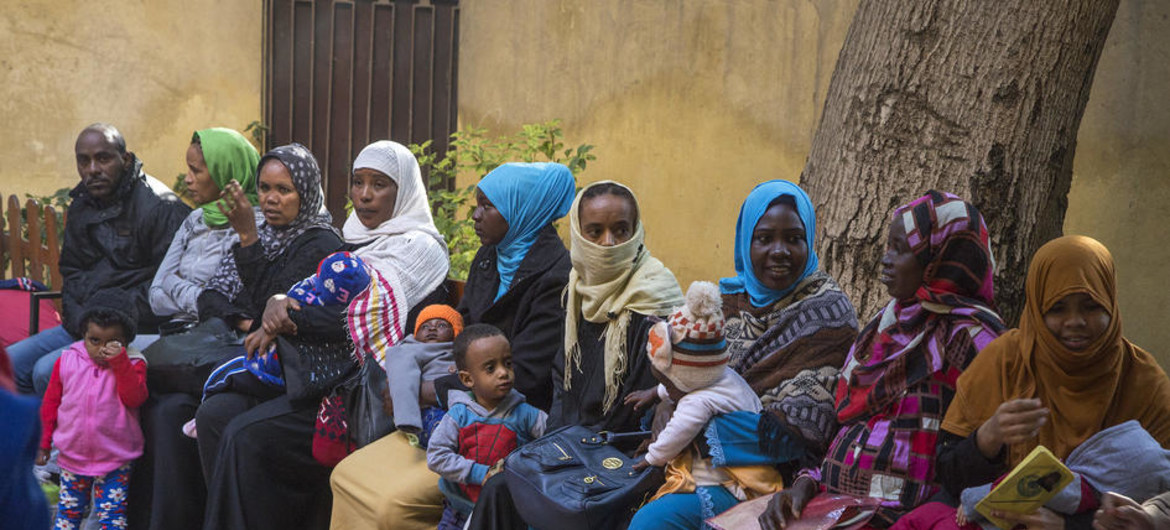
A Wars Tale
By Khadija Abdel Monem Khalid
In Egypt, the sixth-grade exams center was located in Giza, and parents were not allowed to enter the school premises.
In a café on a side street, parents, mostly mothers, were waiting for their children.
The café owner noticed that the waiting parents needed breakfast along with the hot and cold drinks he served. On the third day, he brought a quantity of sandwiches and assigned a young boy to sell them. This was a smart marketing move, catering to the customers needs and providing for them.
On the fourth day, I dont know who came up with the idea, but the café owner brought a large speaker and played the song Sudani El Gowa Wjedani Aheboh (Sudan, the inner strength, I love it). The women burst into tears.
It was a strange scene. Suddenly, there was a universal cry that spared no one. Some cried loudly, others shed silent tears, and some stifled their sobs.
Women from different parts of Khartoum, who didnt know each other, united in a violent, hysterical weeping.
The café owner tried to silence them after rushing to turn off the stereo. He said to them, Why are you crying? Whats wrong? By God, we will carry you on our shoulders. We are your second country.
All that didnt yield any result, and the tears continued. Women whose common bond was the war found themselves as refugees in a strange place.
They were only concerned about the future of their daughters and sons and catching up with exams that no one knew when they would be held again.
The remaining henna that escaped from the nails, traces of kohl driven by tears, but still clinging to the eyes that carry the pride of the longing country, despite the fractures, the losses, and the pain.
They were beautiful in their sorrow, patient despite their pains, resilient in the face of the fire.
Each of them has a story, or rather, a snippet of the story of the torn country.
We will collect those snippets and weave them one day, gathering the strands of the homeland that we carried in our chests wherever we left.
We will use them to heal the broken hearts we left behind, wherever we went.
Add a little oil, onions, and dried meat, and we have our Sharmout Makdook. Not out of hunger, no. But we dont want to forget the taste.
And we say the food here is Masayikh (unsalty), while its not unsalty. Its our taste buds that are unsalty.
We are the ones who clap and cover, hush and silence, and cry silently at night.
We are the ones who mend and sew, assemble and collect, and gather our scattered souls from silence.
We are the women of this land, its palm trees, its tilled soil, and its oases. We are its radiant light and its sky uncovered to the horizon.
We are the Nile, its name is the sea, and its desert is called Saya.
We are the pillars of this land. We were not created for dispersion.
June 22, 2023
From the Sudanese Stories of War, Displacement, and Refuge Facebook group.

